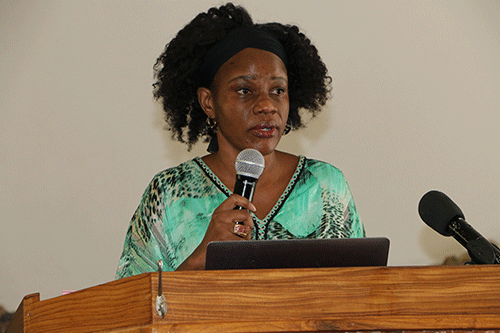Pastors and prophets who preach and practice the gospel of exploitation have rubbed Namibia’s top cop the wrong way.
Police chief Sebastian Ndeitunga says it is high time that lawmakers look into the legal loopholes which have spawned the mushrooming of unregulated churches, often established by bogus pastors and self-styled prophets on the pretext of performing miracles.
“I think there is a loophole in the law that regulates churches in Namibia, and which would make people qualify to run or set up a church. The vetting system in the whole arrangement is very shaky. Anyone from anywhere can just come and set up a structure. There is no system. There is a loophole in the law,” Ndeitunga said about the bogus churches in Namibia.
In recent years, various churches have caught the headlines for all the wrong reasons. These self-proclaimed “pastors and prophets” have been reported for committing sexual misdeeds, corrupt practices and other means of exploitation against church members who look up to them for spiritual guidance with promises of healing the distressed.
Last month, two women accused self-proclaimed prophet Sebarius Muronga (25) of impregnating and assaulting them. They claim they were convinced by Muronga, who they referred to as ‘Papa’, that they would be blessed with employment and husbands, among other miracles, in 2024.
This led to the Mbunza Traditional Court in the Kavango East region in January ordering the closure of the charismatic Grace Church, owned by Muronga, with immediate effect.
In September 2021, a self-proclaimed pastor, who allegedly prescribed a concoction that killed three people in Kavango West, was arrested. It is suspected that the preacher performed a sort of an enema to inject the concoction in the rectums of the victims.
These are among many other crimes reported against the ‘pastor’.
Article 21 of the Namibian constitution makes provision for all Namibians to practice any religion of their choice. As a result, the country has experienced a proliferation of religious institutions since independence in 1990.
Despite the constitutional provision for freedom of religion, it seems that Namibia lacks effective legislation or an Act of Parliament regulating the operations of various religious institutions, apart from a blanket code on non-governmental organisations.
Ndeitunga stressed that most of these bogus pastors come up with the absurd promises of curing chronic diseases such as HIV and AIDS, which are scientifically proven to have no cure.
Equally, he raised concern that families are broken or are on the verge of collapse because of bogus churches.
“They capitalise on the minds of the community. It could be desperation for miracles. There are conflicts in families. Where have you seen a pastor saying “your mother is a stumbling block in your life”? These are bogus pastors. They are total liars and satanic. You can’t be a liar and pretend to be a pastor. These churches need to be banned, but a law needs to be created,” he charged.
Namibia could thus benchmark with West African nations on success stories when it comes to regulating churches, Ndeitunga said, calling on faith-based organisations to come up with regulatory frameworks to protect society from being misled and exploited.
Paul John Isaak, an Evangelical Lutheran Church in the Republic of Namibia (ELCRN) member and a Lutheran theologian, said the African church remains a mixed bag.
He observed that Namibians have a short supply of strong, prophetic voices against enormous socio-economic, socio-political and socio-religious injustices or corrupt practices in all spheres.
Isaak said nowadays, there are church leaders and clergy known as prophets, apostles and pastors who are committing sins against their church members through exploitation with promises of healing, or using women for their sexual satisfaction.
Churches must thus stop being silent in the face of the overwhelming human rights abuses of women, widows, children, orphans, the poor and the weak, he added.
“Otherwise, we remain a church of paradox. We are the most religious Christians, with our churches full to the brim on a given Sunday. But from Monday to Saturday, we are subjecting our Christian sisters and brothers to absolute forms of unemployment, being street children, corruption and sexual exploitation, or a situation where almost 1.6 million Namibians remain poor”, Isaak reasoned.
Such situations, he explained, are not caused by chance, but result from unjust structures, be it religious, political or economic.
Churches should, therefore, use their prophetic voice to initiate radical spirituality.
He also proposed that those who are engaged, be they religious, political or business people making false promises of miracle healings; sexually exploiting women and girls; as well as being involved in corruption, to be jailed for a long time.
Isaak said in the African and Namibian church context, Christianity does currently not translate to a concrete or tangible moral and ethical impact on society.
A Youth for Christ (YFC) member, who humbly asked for anonymity, said pastors who find themselves guilty of such acts should immediately be released from pastoral duties and never be allowed to practice again.
“The Council of Churches in Namibia should be very strict with such behaviour, and should immediately act when hearing of such incidents,” she stated.
–anakale@nepc.com.na



